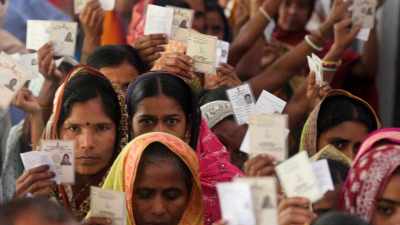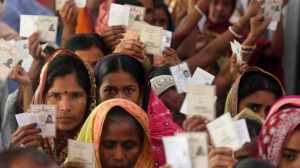Stay updated with the latest - Click here to follow us on Instagram
CM Siddaramaiah proposes 500 new Karnataka Public Schools, AI-based learning
In the Karnataka Budget 20215, Siddaramaiah also announced several academic interventions to improve the learning outcomes of government school students.
 Karnataka Chief Minister Siddaramaiah ahead of the Budget presentation on Friday (Express Photo by Jithendra M)
Karnataka Chief Minister Siddaramaiah ahead of the Budget presentation on Friday (Express Photo by Jithendra M)Presenting his 16th state budget, Chief Minister Siddaramaiah Friday announced that 500 new Karnataka Public Schools will be set up at a cost of Rs 2,500 crore with assistance from Asian Development Bank. The chief minister allocated a total of Rs 45,286 crore (10 per cent) out of the total budget outlay for education.
AI-based learning
Siddaramaiah also announced several academic interventions to improve the learning outcomes of government school students. One of them includes an AI-based learning program called ‘Kalika Deepa’. “The AI-based programme in collaboration with Ek-Step foundation will be extended to students in 2,000 schools with the objective of enabling the students to learn Kannada and English languages confidently and acquire early mathematical competencies,” Siddaramaiah said.
Ragi powder in schools
Siddaramaiah announced that Shri Sathya Sai Annapoorna Trust will extend its Sai Sure Ragi Health Mix powder program in government schools from three to five days a week, with the state government covering 25 per cent of the Rs 100 crore project cost.
Salary hike for guest teachers and cooks
The monthly honorarium of guest teachers in government schools and Pre-University (PU) colleges will be increased by Rs 2,000, Siddaramaiah announced, while cooks working in government schools will receive a Rs 1,000 hike in their monthly salary. The guest teachers of government and PU institutions staged protests in different parts of the state earlier, seeking job security and fair compensation.
Academic interventions
The government also plans to upgrade 100 higher primary schools to high schools and 50 high schools to PU colleges. A three-year program will be implemented to ensure students from LKG to PUC achieve grade-level learning outcomes, with a focus on improving SSLC and PUC results. The pre-primary classes in 2,619 government schools, which have seen an enrolment of 90,195 children, will be expanded to 5,000 schools at a cost of Rs 70 crore.
Siddaramaiah also announced Ganita-Ganaka, a phone-based math learning for Classes 3 to 5; Jnana Setu, a science and math innovation initiative in collaboration with Khan Academy, benefiting 20 lakh students and 15,000 teachers in 5,000 schools, and introduction of bilingual sections in 4,000 government schools to improve English fluency.
Biometric attendance
Siddaramaiah also announced Niranata – an attendance monitoring system using face recognition technology for government schools. This initiative is part of a broader effort to improve the quality of education, with one key aspect being the monitoring of student attendance through a biometric system. The biometric system will also help monitor the number of students benefiting from government schemes such as the distribution of eggs, mid-day meals, shoes, and socks.
Infrastructure development
The budget also earmarked Rs 725 crore for additional classrooms, toilets, and repairs in government schools and PU colleges, along with Rs 50 crore for new furniture. Modernisation of kitchens and procurement of kitchen utensils under the Mid-Day Meal Scheme will cost Rs 46 crore, covering 16,347 schools.
Kalyana Karnataka initiatives
Under the Akshara Aavishkara scheme, 50 schools in Kalyana Karnataka will be upgraded to Karnataka Public Schools at a cost of Rs 200 crore. The government will also fill 5,267 vacant teaching posts in government primary and high schools in the region and take steps to recruit up to 5,000 more teachers.
V P Niranjanaradhya, a school education expert, told The Indian Express, “Some of the academic interventions announced in the budget sound promising. Quality learning has been a major crisis across government schools in the state and I believe some of these academic initiatives will help address the quality concerns plaguing public education.” However, he expressed doubts over the introduction of Nirantara, the facial recognition-enabled system for attendance. “Many reports have emerged, especially in the US regarding facial recognition attendance. A lot of experts have expressed privacy concerns over this technology. Moreover, around 17,000 government schools in Karnataka have less than 50 students. How this technology will fare in Karnataka’s context remains to be seen,” he added.













